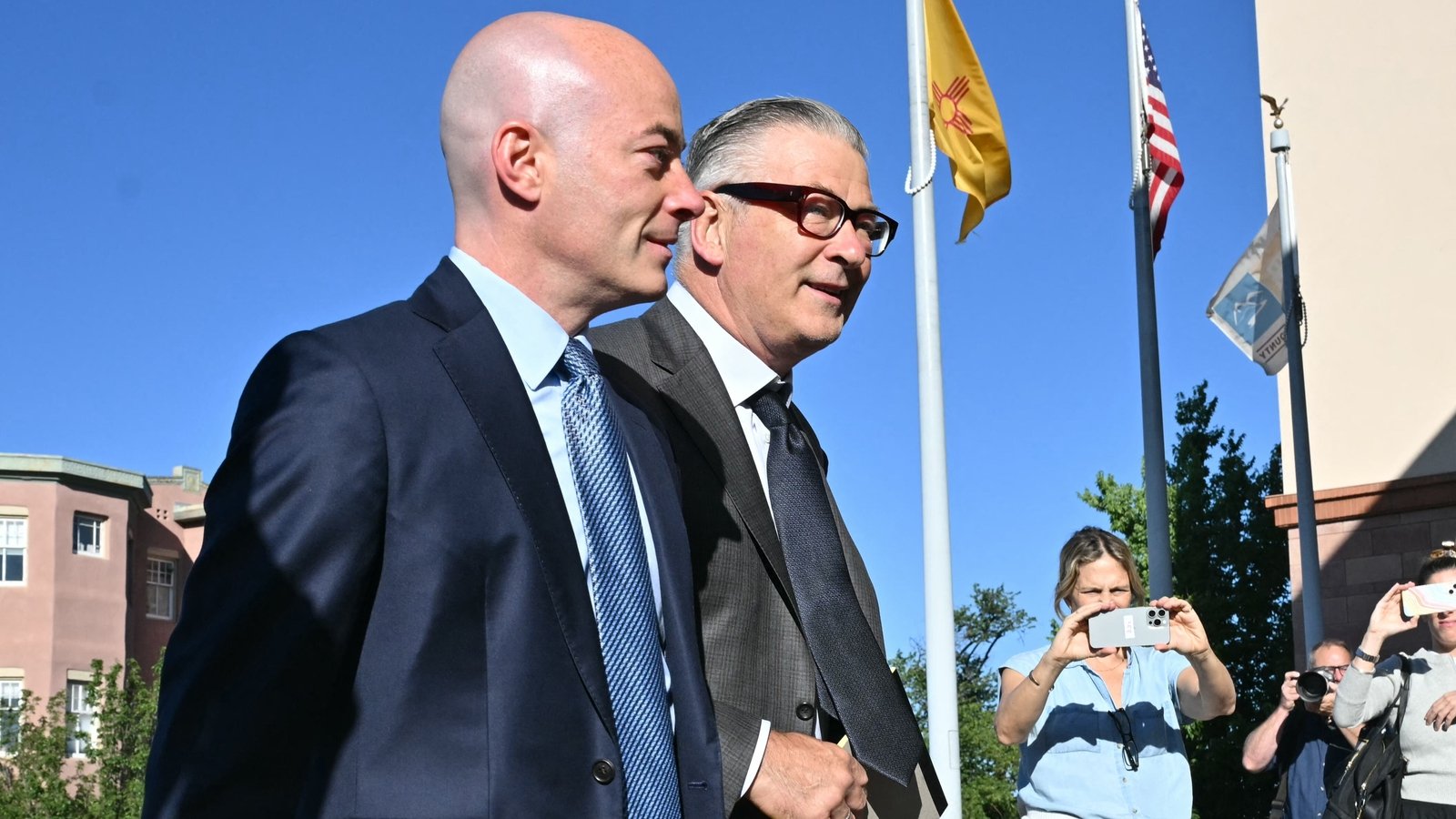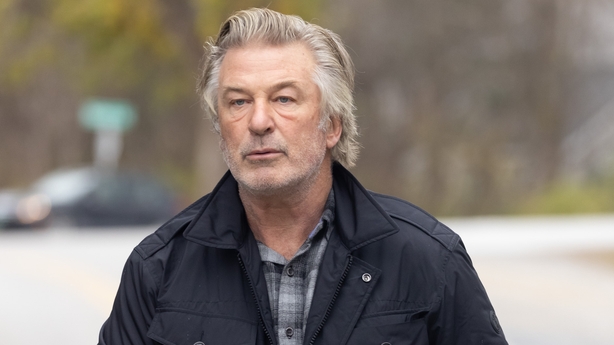Entertainment
Baldwin arrives in court for start of manslaughter trial

US actor Alec Baldwin has arrived at a New Mexico courthouse for the start of his long-awaited involuntary manslaughter trial over a fatal shooting on the set of a Western film.
He attended jury selection for the trial which will determine, over the next ten days or so, whether he is at fault for the death of “Rust” cinematographer Halyna Hutchins in October 2021.
The inner workings of a Colt .45 “Peacemaker” revolver have become the focus of the trial.
Ms Hutchins’ death was Hollywood’s first on-set shooting fatality in three decades and momentarily sparked calls to end the widespread use of real firearms on film sets.
Mr Baldwin’s involuntary manslaughter trial is expected to last eight days and run to 19 July.
It is remarkable in that there is little or no precedent in US history for an actor to face criminal prosecution for an on-set shooting death.
The actor could be imprisoned for up to 18 months if found guilty.
In March, “Rust” armourer Hannah Gutierrez, the set employee in charge of firearm safety, was found guilty of involuntary manslaughter by a Santa Fe, New Mexico, jury for mistakenly loading a live round into Mr Baldwin’s gun.
Ms Gutierrez received the maximum 18-month sentence.
Legal analysts and firearms specialists had long expected Mr Baldwin’s case to hinge on whether he should have inspected the gun after he was told it was “cold,” an industry term meaning it was empty or contained inert, dummy rounds.
But in a pivotal interview in December 2021, Mr Baldwin told ABC News’ George Stephanopoulos he did not pull the trigger, sending prosecutors and defence lawyers into the world of forensic firearms testing.
Mr Baldwin, 66, said he cocked the reproduction 1873 Single Action Army pistol before it fired a live round that killed the rising-star cinematographer and wounded director Joel Souza.
Santa Fe police set out to test his claims.

An FBI examination found the gun worked normally and would not fire at full cock without the trigger pulled.
State prosecutors filed charges thereafter, alleging Mr Baldwin was lying about the trigger.
Mr Baldwin’s legal team last year countered with photographic evidence the Italian-made Pietta gun’s full-cock notch had been filed down, making it easier to fire.
That allowed a mechanical failure or “accidental discharge” without a trigger pull, they said.
Whether the revolver was modified or not, legal experts see an uphill battle for the prosecution to prove Mr Baldwin knew he could kill Ms Hutchins but showed willful disregard to the risk, a level of criminal negligence required for an involuntary manslaughter conviction.
“The gun is probably the best defence, because there is no way to definitively say what the condition of the firearm was,” said gun historian Ashley Hlebinsky who is executive director of the University of Wyoming Firearms Research Center.
Prosecutors last year dropped charges, convinced the gun was modified, only to have a grand jury reinstate them in January after independent firearms expert Lucien Haag confirmed findings of the FBI examination.
The FBI destroyed the gun during testing and the actor’s lawyers said they were left with no way to prove it was modified.
“The worst evidence against Baldwin is the FBI ballistics report that says he pulled the trigger, and his ABC interview where he said he didn’t,” said Neama Rahmani, a Los Angeles trial attorney and former federal prosecutor.
Another possible hurdle for the prosecution is persuading jurors Mr Baldwin is guilty of criminal negligence after Gutierrez and first assistant director Dave Halls were convicted for the shooting.
Mr Halls accepted blame in a plea deal, acknowledging he did not check rounds in Mr Baldwin’s gun.
He was convicted on a misdemeanour charge and given a six-month suspended sentence.
“Juries have difficulty with the idea that people can share guilt,” said University of New Mexico law professor Joshua Kastenburg, a former lawyer and judge in the US Air Force.










